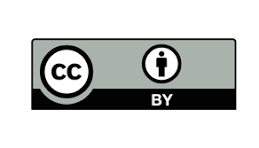ACOMPANHAMENTO DA EVOLUÇÃO DE CINCO PACIENTES SUBMETIDOS AO TRANSPLANTE ALOGÊNICO DE MEDULA ÓSSEA COM INCOMPATIBILIDADE ABO E/OU RH
Palavras-chave:
Quimerismo, Discrepâncias, ABO, Rh, Transplante alogênico de medula óssea (TMO)Resumo
O transplante alogênico de células tronco hematopoéticas (TACTH) tem se destacado por sua eficácia na consolidação da remissão de neoplasias do sistema hematopoiético. Este se dá pela administração intravenosa de células progenitoras coletadas de doadores em pacientes com medula óssea danificada ou defeituosa, de forma a restabelecer sua função. A incompatibilidade do sistema histo-sanguíneo ABO e fator Rh não atuam como impedimento para a realização do TACTH, no entanto, estas evidenciam situações de quimerismo em tais sistemas, ocasionando disparidades na determinação do grupo sanguíneo do receptor. Discrepâncias identificadas pós TACTH desempenham importante papel na elaboração de protocolos transfusionais, a fim de se evitar complicações como hemólises agudas ou tardias e o atraso na recuperação da eritropoese. Sendo assim, este presente trabalho objetivou correlacionar o estado de quimerismo ao TACTH, evidenciando sua ação que acarreta mudanças de ABO e fator Rh no receptor, alertando sobre a necessidade de se estabelecer protocolos transfusionais a pacientes que apresentarem discrepâncias. Para tal, fora realizada uma análise em uma agência transfusional de um hospital particular do município de volta Redonda - RJ, a qual apresenta as disparidades encontradas em pacientes submetidos ao TACTH com incompatibilidade ABO e/ou fator Rh, entre 2015 a 2020, relatando os protocolos estabelecidos e o levantamento transfusional de cada caso.
Abstract
Allogeneic hematopoietic stem cell transplantation (AHSCT) has stood out for its effectiveness in consolidating the remission of neoplasms in the hematopoietic system. It is done by intravenous administration of progenitor cells collected from donors to patients with damaged or defective bone marrow, in order to restore their function. The incompatibility of the ABO histo-blood system and the Rh factor is not prohibitive for the performance of AHSCT, however, chimerism situations in such systems can occur and cause disparities in the determination of the recipient's blood group. The non-conformities identified after HSCT play an important role in the elaboration of transfusion protocols, in order to avoid complications such as acute or late hemolysis and delay in the recovery of erythropoiesis. The objective of the present study was to correlate the state of chimerism of AHSCT and changes in ABO and Rh factor of the patient, showing the need of transfusion protocols for the patients that present such discrepancies. To this end, an analysis was carried out at a transfusion agency in a hospital of Volta Redonda city in state of Rio de Janeiro. Data of AHSCT patients (between 2015 and 2020) that presented disparities of blood type with theirs donors were analyzed, including the description of the protocols used and the transfusion survey of each case.
Downloads
Downloads
Publicado
Como Citar
Edição
Seção
Licença
Copyright (c) 2021 Episteme Transversalis

Este trabalho está licenciado sob uma licença Creative Commons Attribution-NonCommercial 4.0 International License.
Revista Episteme Transversalis © 2010 por Centro Universitário Geraldo Di Biase está licenciada sob Creative Commons Atribuição 4.0 Internacional. Para visualizar uma cópia desta licença, visite https://creativecommons.org/licenses/by/4.0/













